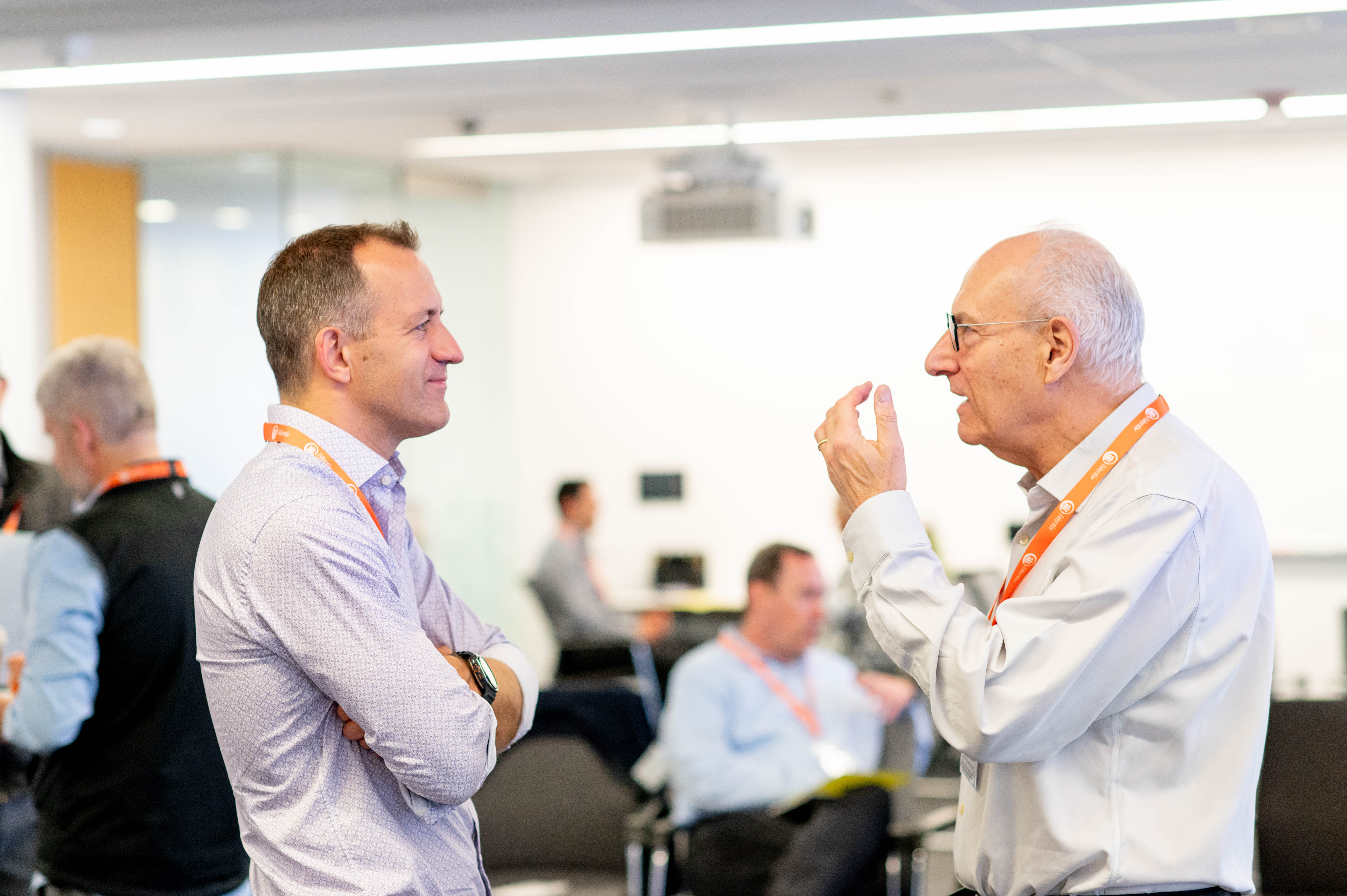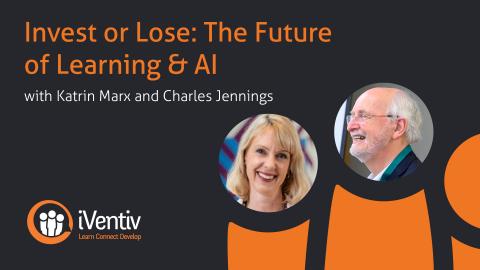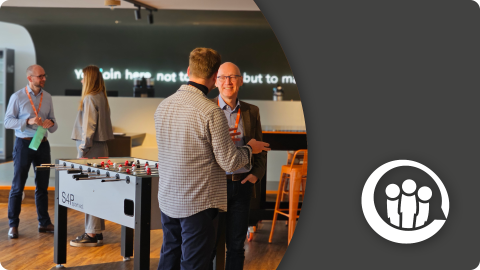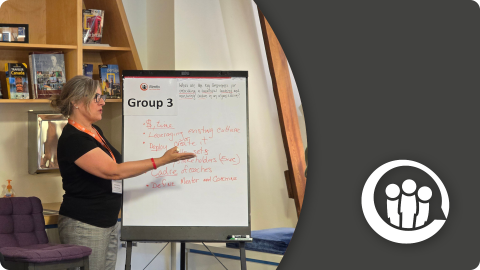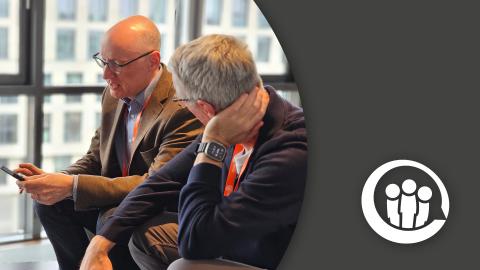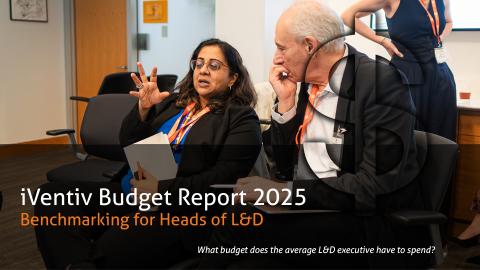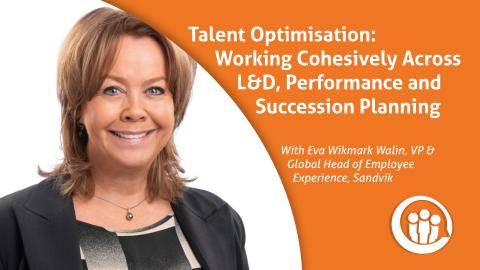Submitted by Kerry Summers on
In global organisations, Learning & Development teams often look unified on paper—but behind the scenes, it’s a different story. Regional teams design their own programmes.
Departmental leads chase different metrics. Valuable insights stay locked in local drives or hidden in email threads.
Before long, what was meant to be a cohesive Learning strategy starts to fragment into isolated pockets of expertise.
These knowledge silos are more than just an inconvenience—they slow transformation, duplicate effort, and dilute impact. Every team is often tackling the same problems: how to scale learning, prove impact, or embed AI and skills-based learning. They just aren’t talking to each other.
The good news is that this problem can be solved. By creating intentional spaces for global L&D collaboration—through thoughtfully designed bespoke events like iVentiv’s—you can reconnect people, unlock best practices, and build a learning culture that truly operates across borders.
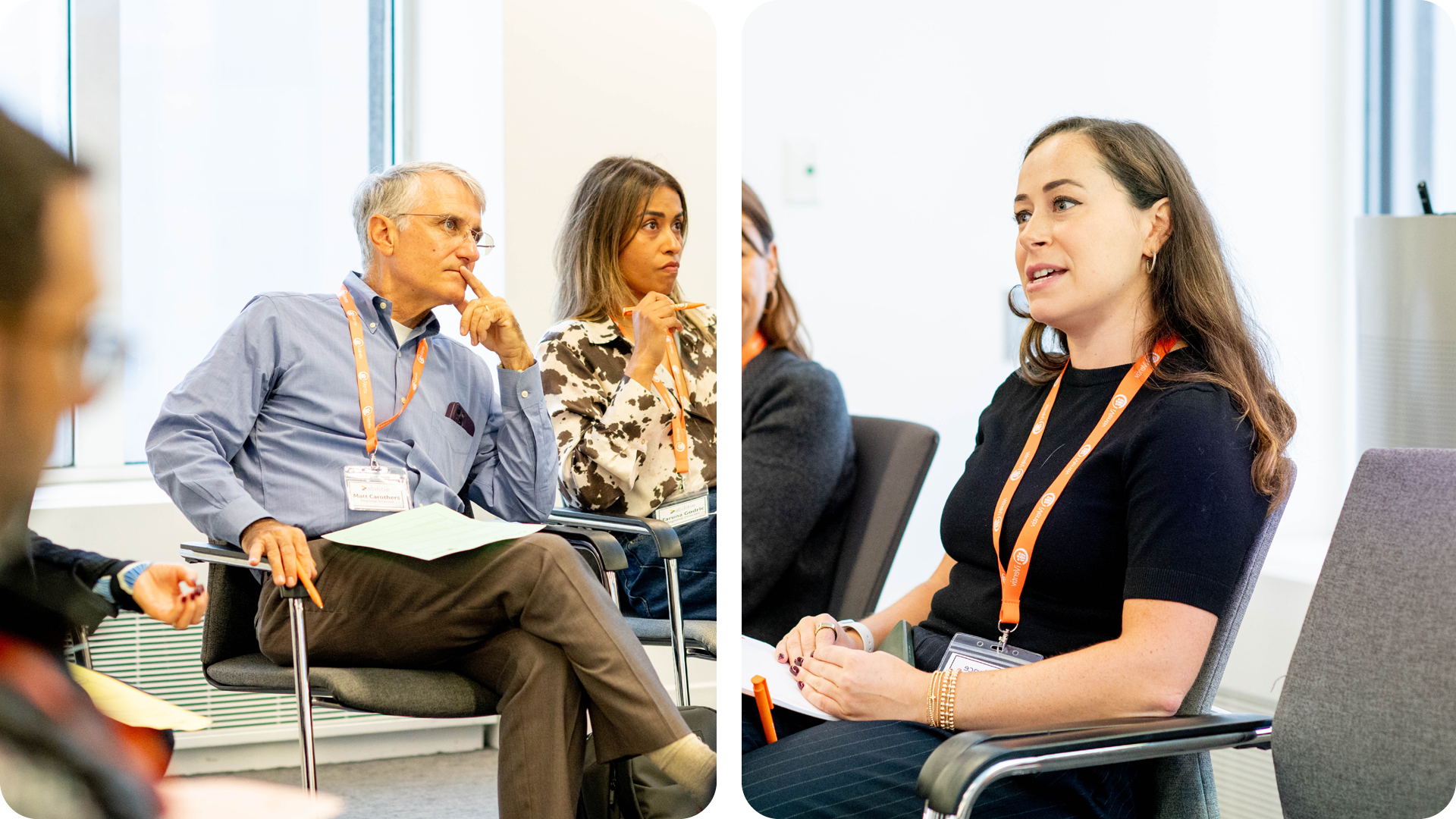
The Problem: Regional and Departmental Isolation in Global L&D
When your L&D operation spans multiple regions, countries, cultures, or business units, it’s easy for fragmentation to creep in:
- Teams in different geographies rarely meet in person and may follow divergent processes, tools or learning philosophies.
- Departmental walls (e.g. leadership development vs technical training vs onboarding) can deepen separation.
- Lessons learned in one team (e.g. what works for leadership in Asia) don’t get communicated to others (e.g. leadership in Latin America).
The result: wasted effort, inconsistent learner experiences, and diminished ability to scale best practices globally.
For large Learning organisations, bridging this divide is not optional—it’s critical.
Without cross-regional visibility, you lose the potential multiplier effect of shared learning design, reuse of assets, and collective problem-solving.
That’s where the power of events and structured knowledge sharing comes in.
How Events Foster Cross-Regional Collaboration
Well-designed events act like knowledge highways; they create safe, intentional space for cross-regional interaction. Here’s how iVentiv does it:
They bring people together across geographies and functions
When you convene Learning practitioners from multiple regions and departments in one forum, you break the isolation barrier. People see each other face-to-face (or virtually) and realise they share common roles, challenges, and ambitions.
They highlight common challenges
Through breakout conversations and group discussions, you can surface recurring issues (e.g. measurement of learning impact, stakeholder engagement, technology integration). Once identified, participants recognise that their struggles are not unique—and that collective solutions may exist.
They create space to share solutions
In breakout sessions, participants can present what’s working, what failed, and lessons learned. The act of sharing itself helps to dismantle the mindset that “we’re the only ones dealing with this issue.” Instead, you build a culture of transparency and co-creation.
They plant the seed for ongoing collaboration
Beyond the event itself, connections made through collaborative discussions or informal networking often grow into ongoing peer cohorts, cross-regional working teams, or internal “coaching groups” that continue knowledge exchange long after the gathering ends.
In short: events are catalysts, not one-time fixes.
Virtual vs In-Person Knowledge Sharing: Pros & Trade-offs
A key decision is whether to run virtual, in-person, or hybrid knowledge sharing workshops or events. Each mode brings unique benefits—and constraints.
Virtual (online) events
Pros:
- Lower travel cost and logistical overhead
- Easier for more people to attend, especially across time zones
- Opportunity to record sessions for asynchronous viewing
- Can scale more flexibly (e.g. smaller regional hubs linked into a central program)
Cons:
- Engagement fatigue (Zoom fatigue)
- Harder to replicate serendipitous conversations
- Time-zone constraints make scheduling awkward
- Less intimacy and informal bonding
In-person (on-site) events
Pros:
- Richer, higher-quality interaction and relationship building
- Multiple simultaneous conversations
- Stronger sense of occasion and buy-in
- More immersive experiences (e.g. team exercises, live simulations)
Cons:
- Cost, travel logistics, venue coordination
- Potential for unequal attendance if some regions can’t travel
- Harder to include remote participants
Hybrid / blended models
Many organisations adopt a hybrid approach: core in-person meeting, supplemented with virtual streams and asynchronous content. Or regionally held hubs synchronised with a central virtual backbone.
Tip: Choose the format that aligns best with your objectives, budget, and global footprint. If your goal is relationship building and deep collaboration, prioritise in-person. If your priority is broad reach and inclusivity, virtual or hybrid may be better.
How to Encourage Knowledge Sharing at an Event
Even the best event design won’t magically produce collaboration unless you build in the right mechanics. Here are six practical tactics:
1. Run smaller, well-aligned events
Smaller gatherings (e.g. 20–40 participants) ensure that attendees share common roles or challenges, improving relevance and peer connection. Too broad a gathering dilutes engagement.
2. Use breakout groups for in-depth conversations
Large plenary sessions often limit participation. Breakout groups (ideally 4–6 people) allow deeper discussion, safe sharing, and problem solving. Rotate participants across groups to foster cross-pollination.
3. Implement Chatham House Rules
Declare early that participants can speak freely about insights but not attribute comments to individuals or organisations . This encourages open, honest sharing without fear.
4. Create sharing spaces, not only presentations
Don’t rely solely on expert talks. Design something similar to iVentiv’s breakout conversations around flipcharts, peer coaching exercises, or fishbowl conversations. The goal is two-way exchange, not monologue.
5. Inject interactivity and co-creation
For iVentiv, interactivity and collaboration are the backbone of truly impactful events. Not only does it encourage honest, open sharing, it also allows genuine connections to be made.
6. Build follow-up momentum
Before the event ends, commit to follow-up: peer-led working groups, Teams/Slack/WhatsApp channels, and feedback. The event should be the spark, not the conclusion.
Key Roles & Responsibilities in Planning
To run a successful knowledge-sharing event, clarity on roles is essential. Here’s who typically needs to be in the mix—and what they deliver:
Events team
- Venue, catering, room layouts, AV, registration, travel, accommodations
- Ensuring on-the-day smoothness (timing, signage, materials)
- Managing contingency plans
Delegate Relations team
- Build excitement and encourage conversation ahead of the event
- Handle invites, reminders
- Keeping participants engaged pre-event (surveys, alignment calls)
- Post-event follow-up communications
Content Manager
- Setting objectives, themes, and desired outcomes
- Defining session types (plenary, breakouts)
- Sequencing sessions to build momentum
- Engaging expert facilitators and Event Chairs
Event Chair
- Guiding group conversations, ensuring all voices are heard
- Keeping time, injecting energy, surfacing insights
- Bridging between groups, encouraging collaboration
- Managing group dynamics
Expert Facilitators
- Bringing expertise or case studies
- Stimulating and challenging the group
- Committing to active co-discovery, not a one-way lecture
iVentiv + Microsoft: A Case Study in Global L&D Collaboration
When Microsoft Germany launched the AI Skilling Alliance, a community initiative aimed at uniting industry associations, start-ups, and leaders to accelerate AI adoption across the German economy, there was a clear need for something more than virtual connection.
As the alliance grew, it became evident that real progress would require face-to-face interaction – space to build trust, exchange ideas, and truly bond as a collective. Having previously experienced iVentiv’s peer-led format during her onboarding journey, Microsoft’s Area Learning Lead, Daniela Todorova , knew exactly who to partner with to bring this vision to life.
The resulting iVentiv Bespoke Event delivered not just a gathering, but a moment of momentum. Attendees—many of whom were meeting in person for the first time—connected openly and enthusiastically. The impact, she reflected, would be lasting: a stronger network, greater inspiration, and increased confidence across the Alliance.
What stood out most for Daniela was the sense of mutuality; the collaborative design, the shared objectives, and the feeling of being genuinely supported throughout. In her words, the experience wasn’t just well-organised—it was reliable, warm, and rooted in trust.
iVentiv CEO & Founder Russell Butler attended and ran a session which included:
- iVentiv’s Collaborative Café
- Expert input by external and internal contributors Charles Jennings (Director, Duntroon Consultants, and Co-Founder, 70:20:10 institute), Prof. Dr. Heiko von der Gracht (Futurist & Professor of Foresight & Digital Transformation, KPMG Deutschland), Bas Puts (Global Head of Learning & Skill Architecture, Siemens), Miriam Kugel (Director EMEA, People Science Advisory Microsoft), and Klaus Scheile (VP, Learning & Development, T-Systems International)
- The iVentiv Fishbowl
Why did the iVentiv format work so well for Microsoft?
Peer-to-peer orientation
The format privileges exchange over formal lecture, helping senior leaders share and test ideas.
Limited size, high quality
A smaller group ensures depth and real connection rather than superficial networking.
Continuation beyond the event
Many participants maintain connections, work in cross-company cohorts, and drive longer-term collaboration.
iVentiv’s Call to Action for Global Heads
If your L&D organisation is struggling with knowledge silos, don’t resign yourself to isolation. Thoughtful events—virtual, in-person, or hybrid—can unlock the collective intelligence of your teams.
By designing for global L&D collaboration, embedding knowledge sharing activities and cross-collaboration, and bringing in external support, you can build a sustainable, connected learning organisation.
Partner with iVentiv to organise a bespoke event over one or two days or host a virtual global roundtable.
Whatever your path, your global learning teams will thank you—and your organisation will reap the benefits of shared learning, alignment, and innovation.
Ready to build collaboration via a bespoke L&D event? Let’s talk about designing yours.
Related Resources
- Designing Events for Knowledge Sharing: Practical Techniques
- A Framework for Running L&D Events with Global Teams
- What Makes an Effective Learning and Development Team Event?
- 10 Questions to Ask Before Planning an Internal Event
- Why Customer Education Matters
- Planning Corporate Events For Small Groups: A Complete Guide
- Why Internal Events Often Fail, and How to Fix Them
- How to Engage L&D Teams Through Events
- The Difference Between Team Building and Team Learning
